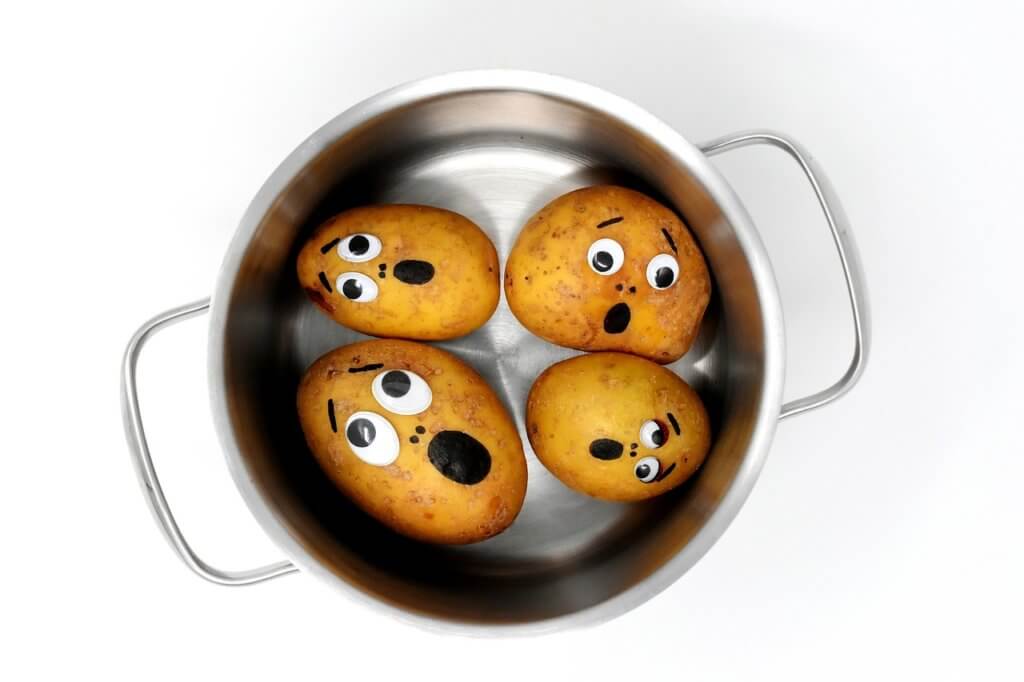Save our spuds: Everything you need to know about potatoes

Potatoes are one of our favourite foods, so it is probably surprising that they are also one of the most wasted foods in New Zealand.
Despite our love for chips, mashed potatoes and roasted spuds, we throw away 12,005 tonnes of potatoes every year.
Here’s everything you need to know so you don’t waste another potato again.
Shopping

There are many different varieties of potatoes and each type is better suited to a certain way of cooking (e.g. boiling, mashing or roasting). If you know how you are going to use your potatoes, try to buy the variety most suited to it. If you’re not sure how you will cook them, it’s best to buy a general all-purpose potato like rua or desiree.
Odd shaped potatoes have no impact on the flavour so go ahead and buy them.
It’s best to buy small amount of potatoes often, rather than buying large sacks of them, to ensure that they are fresh when you eat them.
If you need potatoes that will last a while, buy unwashed potatoes. Unwashed potatoes last longer than clean potatoes, as the dirt protects them from bruising. Only wash them just before you are going to use them.
Storage

Perhaps the most important thing to know about potatoes is how to store them properly.
Potatoes should be stored in a well-ventilated, cool, dry and dark place, like a cupboard. Don’t store them in warm areas such as under the sink or near the oven as this can cause them to sprout.
Remove potatoes from any plastic packaging and store them in a paper bag or cardboard box.
Potatoes should be stored away from onions in another part of the kitchen, as they both release moisture which causes them to sprout faster.
Never store potatoes in the fridge as this will affect their flavour.
Sprouting potatoes
Sprouting potatoes, or potatoes with eyes, are safe to eat – just cut off the sprouts before cooking.
Green potatoes
You may occasionally come across a green potato, which is what happens if potatoes are exposed to light. This is a result of chlorophyll forming on the surface of the potatoes.
Green potatoes can also indicate that there is an increased level of the toxic alkaloid solanine.
If there are small amounts of green on your potato, you can cut it off and use the potato.
If there is a lot of green, then it is best to throw away the potato. Do not feed green potatoes to any animals as it could make them sick.
A bitter potato can also indicate an increased level of solanine, so throw way any bitter potatoes.
Peeling potatoes
Potatoes don’t need to be peeled before use, although you will need to give them a good wash.
If you are making mashed potatoes you may want to peel your potatoes to ensure a nice smooth texture. If you do peel the potatoes, keep the skins and use them to make these delicious potato peel chips.
Freezing potatoes
Raw potatoes don’t freeze well – they become watery and don’t cook well.
Cooked potatoes can be frozen, although you may find their texture will be affected, depending on how they are cooked.
You can parboil potatoes and then freeze them in preparation for roasting. When you are ready to roast them just put them in the oven straight from frozen.
Mashed potatoes that have been made with dairy products like butter or sour cream will freeze better than boiled or roasted potatoes due to the higher fat content.
What about kumara

Kumara should be stored like potatoes – in a well-ventilated, cool, dry and dark place. Do not refrigerate them and always remove them from the plastic packaging. They are best used within a week or two.
Like potatoes, kumara don’t need to be peeled before using.
Cooked kumara freeze well.
